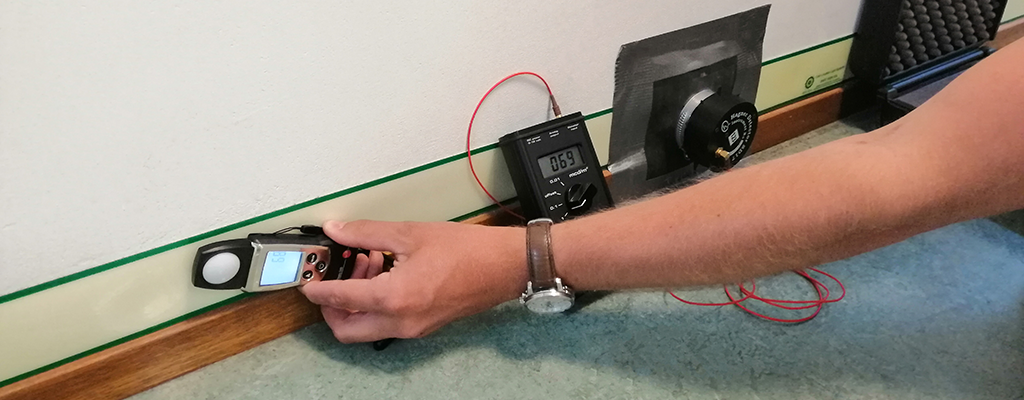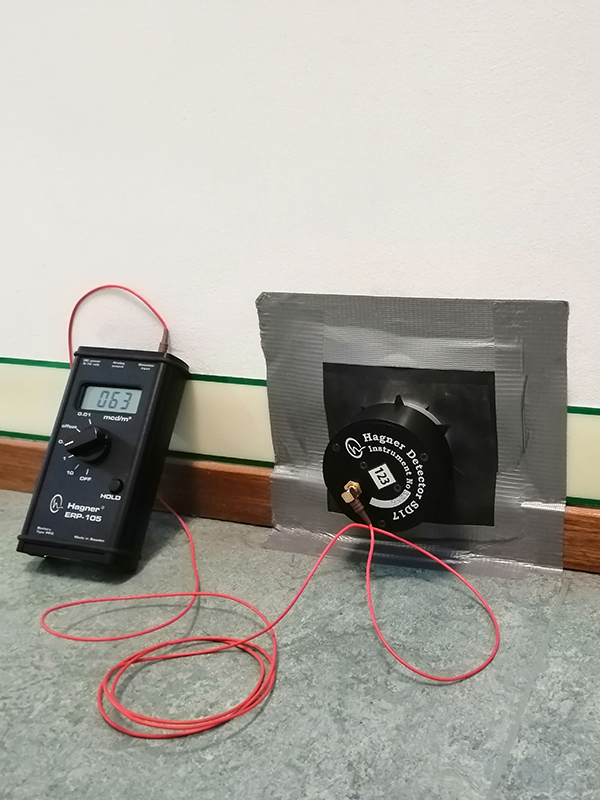
T-ISS is accredited by DNV to execute Low Location Lighting measurement services, our certification can be found under Downloads.
As a vessel owner, you need to test all Low Location Lighting systems at least once every five years. T-ISS engineers will test the luminance of your LLL systems on-board with fully certified test equipment. The photoluminescence measurement process as well as equipment are all certified by DNV. We will report all readings including the required upgrades and/or modifications. We will do this upon completion of the luminescence measurement survey, and when all systems meet the legally required ratings.
Examples of our Low Location Lighting measuring services:

According to several regulations, vessels that carry passengers are obligated to have a Low Location Lighting system installed. This could be a photo luminescent system as well as an electric system. A photo luminescent system is charged by the lighting on the vessel and will use the energy it collects to light up in the dark. The big advantage of this system is that there are no electric installations that need to be installed. This will save you money in installation costs, as well as the costs of running the system.
On the other side we have the electric low location lighting systems. These systems are connected to the electric network of the ship, and will switch on when the regular lighting of the ship shuts off. In summary; photoluminescent systems require daylight and / or artificial light to run and do not need electric power. Electrical systems do not require daylight or artificial light to run, but require a controlling and electrical system to operate.
The regulations that oblige having an Low Location Lighting system also state that the installed Low Location Lighting system should be checked and measured once every five years. This periodic photoluminescence measurement must meet the DNVGL regulations. In order to make sure that these luminescence measurements are done by a neutral, impartial surveyor, regulations won’t allow vessel owners to do the measurements themselves. This is where a company like T-ISS comes in.
Essentially, the goal of the Low Location Lighting measurement is making sure the system still has enough light output to ensure its effectiveness. If not, the system’s performance is insufficient and won’t meet the expected standards set by the regulations. We express the minimal light / luminescence output the system should meet in Lumen. We approve our engineers according to DNVGL and use high-end equipment that measures the mentioned light output. Logically, measuring an electric LLL system differs from measuring a photo luminescent system. This due to the fact that electric systems don’t require any light to charge up the system, and can be measured instantly. On the other hand, electric systems must be able to run on battery power for at least 60 minutes. To ensure a representative measurement, you need to charge photoluminescent systems properly, which our specialized engineers will take into account.
When you consider T-ISS as the right partner for the required measurements on your vessel, feel free to contact us. This way we can advise you and answer any questions you may still have according to LLL measurements. One of our engineers can analyze your specific situation and vessel. This way, he will advise you with substantiated information. After the measurements, the engineer that executed the measurement will report all readings in a clear overview. This includes all the upgrades and / or modifications that, when needed, you need to do to meet the required regulations.

In some cases it occurs that the measured and tested Low Location Lighting system doesn’t meet the required specifications. In this case, you need to replace and / or renew the inadequate Low Location Lighting. This way the system will meet its regulations again. T-ISS is a specialist when it comes down to the installation and renewal of LLL systems on cruise liners, ferries and all other vessels that carry passengers. If you would like to know more about this subject, please contact us or visit the concerned Product Page.
Besides our turn-key solutions, T-ISS offers service for the installation of signs, Low Location Lighting systems and pipe marking by our highly skilled and experienced engineers.
Examples of our installation services: